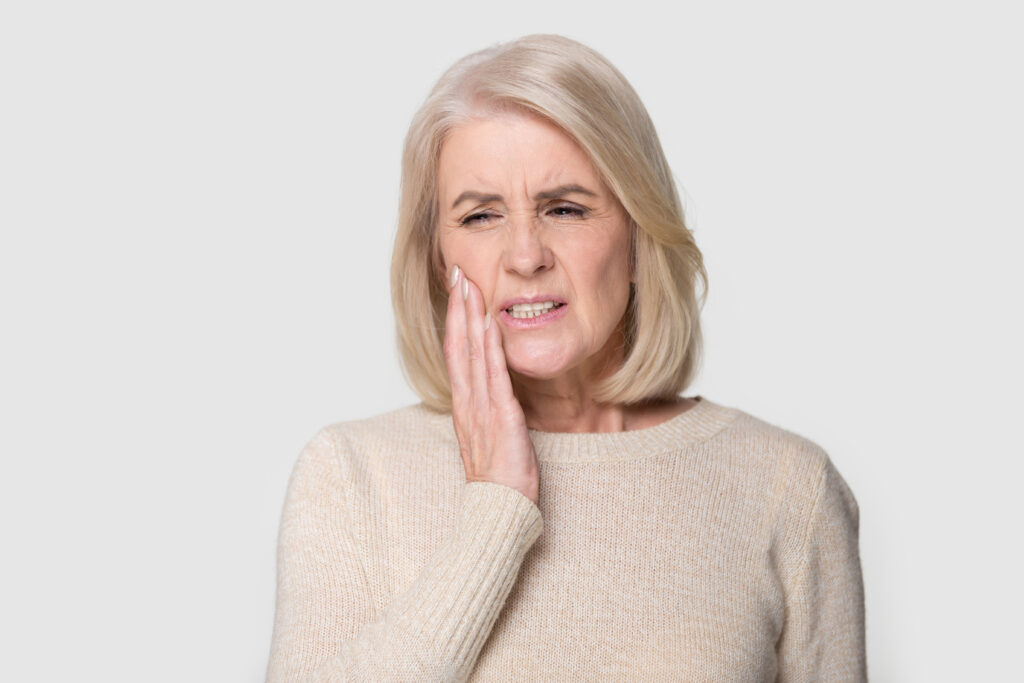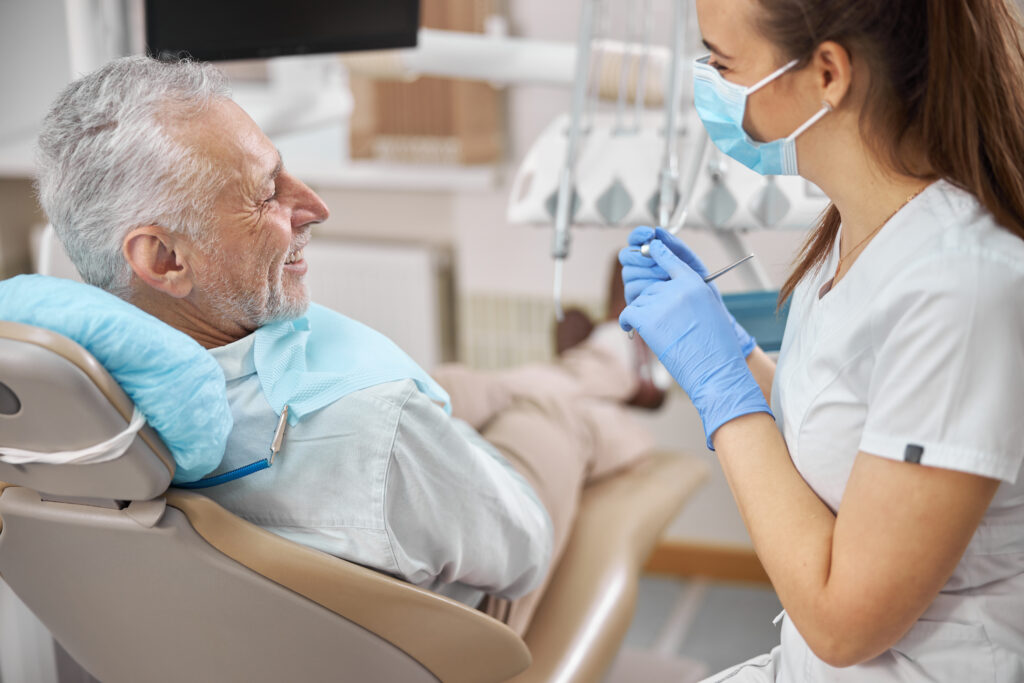Oral Health for Seniors
Adults over sixty can face unique challenges when it comes to keeping their teeth and gums healthy. About three in five adults over 65 have gum disease and nearly one in seven have lost all of their teeth.
Getting older doesn’t have to mean losing your teeth. This article will discuss some of the reasons for increased risk of complications and some steps you can take to keep your mouth healthy.
Dental care is important for everyone. There are several dental issues that are especially common in older adults. These problems can affect people of all ages, but older adults should take special care to avoid them.

Some common dental issues for older adults are:
- Tooth decay. The breakdown of dental enamel, the hard outer surface of your teeth, is known as tooth decay. The acid created by bacteria on your teeth destroys the enamel, causing it to erode. Tooth decay is the result of this. Tooth decay can also cause discomfort and chewing difficulties.
- Gum disease. Periodontal disease, or gum disease, is an infection that affects the tissue and bone that support your teeth. Gum disease may be painless, but that doesn’t mean it doesn’t cause problems. Your teeth may become loose or fall out if you have advanced gum disease.
- Tooth loss. Periodontal disease is one of the most common causes of tooth loss. Teeth loss can cause cosmetic issues, chewing difficulties, and malnutrition.
- Oral cancer. Oral cancer, often known as mouth cancer, is more common as people get older. People over the age of 50 are more likely to experience it. At each visit, your dentist will screen for oral cancer. Mouth sores that don’t go away, red or white patches, bumps or rough regions, and changes in the way dentures fit are all signs to look out for. If you detect any of these symptoms or a change in your dental health, contact your dentist right away.
Possible Causes of Dental Problems in Older Adults
There are many possible causes for dental issues in older adults.
Some common causes are:
- Dry mouth from medication. Dry mouth is a common side effect of prescription drugs. Saliva is a vital component of oral health. Drying your mouth irritates the soft tissues, causing them to become irritated and infected. Tooth decay and oral infections might become considerably more likely if you don’t have enough saliva to keep your mouth clean.
- Certain medical conditions such as diabetes. Gum disease is more common and severe in older adults with diabetes, especially if they smoke or have poor blood sugar management. Adults with diabetes are also more prone to experience tooth loss due to gum disease. If you have diabetes, it’s critical to keep your blood sugar under control, eat a balanced diet, and practice daily oral hygiene.
- Conditions like osteoporosis or arthritis. Make it more difficult to brush or floss on a regular basis, increasing the risk of gum disease. A powered toothbrush may be easier to use if you have mobility issues in your hands, arms, or shoulders.
Prevention and Treatment
The most important thing you can do to prevent infections is to maintain good oral hygiene. All older adults should be careful about their oral health. You can avoid many of these issues by maintaining good oral health at home.

- Make sure that you brush your teeth twice a day for two minutes each time, and floss daily.
- Use a toothpaste that contains fluoride, and drink fluoridated water, if available.
- See your dentist regularly for prevention and treatment of oral disease.
- Make sure to tell your dentist about your overall health and what medications you are taking.
- Avoid tobacco in any form. Tobacco, including cigarettes and chewing tobacco, can increase your risk for gum disease and oral cancer.
- Let your doctor know about any medications you are taking. If one or more of your medications is causing dry mouth, your dentist can recommend ways to increase saliva flow. This may include sipping on water throughout the day, sucking on ice chips or sugar-free candy, or keeping the air in your home moist with a humidifier.
Remember that good dental hygiene is an important part of healthy aging. There is no substitute for brushing your teeth after each meal and flossing every day. Please call Lake Cities Dental at (817) 410-7373 or schedule an appointment here online to ensure you get the right treatment or preventative education to protect your teeth from dental issues as you age.
